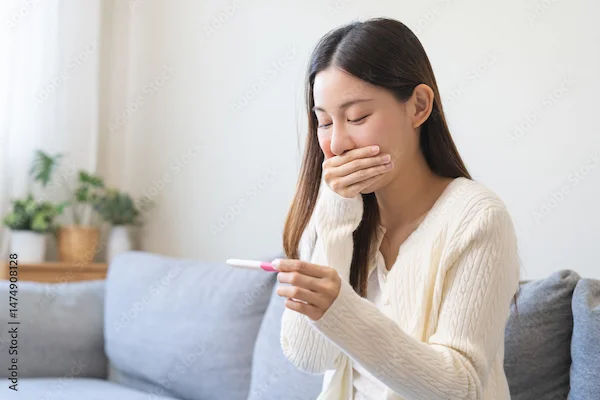- female
- 49 Years
- 01/04/2021
Can periods just stop at 49?
Answered by 1 Apollo Doctors
Menopause is the time that marks the end of your menstrual cycles. It's diagnosed after you've gone 12 months without a menstrual period. Menopause can happen in your 40s or 50s, but the average age is 51 in India.
Dr. Ibrahim Suggests...
Consult a Obstetrician and Gynaecologist
Answered 04/07/2025
0
0


Ask Apollo
AI powered Health Chatbot
-
Menopause Timing:
- Stopping periods around age 49 is common and often indicates the onset of menopause.
- Menopause typically occurs between ages 45 and 55.
-
Symptoms:
- You may experience hot flashes, night sweats, mood changes, or sleep disturbances.
-
Health Monitoring:
- Regular health check-ups are important to manage symptoms and monitor bone and heart health.
If periods stop suddenly or unusual symptoms occur, consult a healthcare provider to rule out other causes. Stopping periods at this age is a natural part of aging for women.
Answered 20/08/2025
0
0
More Obstetrics & Gynaecology Health Queries
View allI was recently diagnosed with a 1.1-1.2 cm subendometrial fibroid in the upper anterior wall of my uterine cavity. I don't have any symptoms but I'm trying to get pregnant do I need to remove it for fertility? What kind of surgery would be required if it has to be removed? Just wondering if it could affect a normal pregnancy
Surgery not needed
Answered by 1 Apollo Doctors
Can I manage heavy bleeding and endometrial hyperplasia without surgery? My endometrium is thick and I have polyps but I'm hoping to avoid an operation are there other options?
Yes, many cases of endometrial hyperplasia and heavy bleeding can be managed effectively without surgery. Progestin therapy is often the first line of treatment, and in some cases, other medical options like hormonal IUDs or medications can help reduce bleeding and manage the hyperplasia. Lifestyle changes and regular monitoring with your doctor are also important aspects of management.
Answered by 1 Apollo Doctors
Does masturbation cause PCOS?
No
Answered by 1 Apollo Doctors
Disclaimer: Answers on Apollo 247 are not intended to replace your doctor advice. Always seek help of a professional doctor in case of an medical emergency or ailment.
 Is stopping periods at 49 always menopause?
Is stopping periods at 49 always menopause? 


.webp)
